Filing for a patent, and obtaining the title, requires following a procedure whose steps must be mastered to ensure success. Who can do this, and who should you contact?
Registering a patent as an individual or independent inventor
An individual inventor can file a patent application with the Institut National de la Propriété Industrielle. TheINPI receives the applications and decides whether or not to grant patents for France. As a patent is a national title, you must apply to the INPI for a French patent, the USPTO for an American patent, JPO for a Japanese patent… It is also possible to file a single European patent for 38 member states (including Switzerland, Turkey…), but also to file a PCT international patent application, which gives you 18 months to choose the countries of interest.
The individual who registers the patent becomes its owner once the process has been successfully completed. He or she, in his or her own name, has a 20-year monopoly on the exploitation of the invention, subject to payment of annual fees. These fees are lower for private individuals.
Once a patent has been obtained, the individual can exploit the invention himself, or add value to it through a license. This license can be used to obtain remuneration from companies, for example.
A patent can also be filed by a number of different individuals. In fact, an invention can have several inventors, and the INPI’s patent filing procedure allows for this. However, the intervention of an agent is mandatory in this situation. In this case, you can call on the services of an INPI-approved patent attorney to draft the patent and assist you with the formalities.
Apply for a patent online
Certified IP attorney INPI ✔︎ and EPO ✔︎
Apply for a patent as a company
A legal entity, such as a company or association, is authorized to file a patent application. The application is filed with the INPI in the company’s name, and the company becomes the owner of the patent. It controls the exploitation of the patent, and is in a position to react in the event of infringement to defend its interests against competitors.
A company that registers a patent is putting in place a genuine growth strategy, to benefit from exclusivity on an invention and control its use. It’s also a financial move to take into account, as the patent becomes part of the company’s assets and enables it to be valued on the market.
Thanks to the research tax credit (CIR), an innovative company is able to obtain a tax credit on the fees of an IP consultant and its R&D expenses. The cost of filing a patent with an accredited IP professional is therefore partially covered. To find out how much you’ll need to protect your invention in France, Europe or abroad… consult our calculator, which shows you the cost of your steps in a personalized way and in just a few clicks. And since our fees are approved for the Research Tax Credit, you can reclaim 30% of our invoice as a tax credit.

Do I have any rights as an inventor when the patent belongs to a legal entity?
The inventor and the patent owner can be two different people, depending on the situation and the context in which the inventor discovered the patentable technical solution. The most common case is that of an inventor employed by a company: the inventor, a natural person, is named as such in the patent, but the patent applicant, and therefore the patent owner, is the inventor’s employer, a legal entity. Intellectual property law provides a framework for these situations, in order to limit disputes between employee inventors and their employers. In this respect, the rules governing employee inventions make it possible to determine to whom the patent belongs, and what remuneration the employee inventor is entitled to, depending on whether or not he or she had an inventive mission in his or her employment contract.
